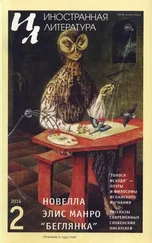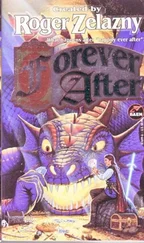There is a flat place where the road first reaches the top of the hill—a stretch of about a hundred yards or so before it starts descending again, into the valley. When you get just past the middle of this you can see it all, the river, the house, the barn, the trees, pasture, everything. It has always been my favourite sight, maybe because when I saw it I was always coming home. Being spring, today it is all a new fresh green.
When he got to that place he stopped. He dropped the shaft of the wagon and just stared for about a minute. Then he ran forward down the road, very clumsy in his plastic suit, waving his arms. He ran to a tree by the roadside and pulled a branch, tearing off the leaves and holding them close to his glass face mask. You could tell he was thinking: Are they real?
I was watching from a place only a little way up the hillside, a path in the woods. I had my gun beside me. I did not know whether he could hear or not with that mask on, but I did not move or make a sound.
All at once he pulled at the mask, at a fastening at the neck of it, as if he were going to take it off. So far I could not see his face at all, but only the glass plate, so I was staring. Then he stopped, and instead ran back to the wagon. He unsnapped the plastic cover at one end and pulled it open. He reached inside and took out a glass thing—a sort of tube with a metal rod in it, like a big thermometer. It had some kind of a dial or gauge on it to read—I couldn’t see from where I was, but he held it in front of his mask and turned it slowly, studying it. He walked back down the road to the tree, looking at the rod. He held it down close to the road, then up high in the air. Then back to the wagon again.
He took out another machine, something like the first one but bigger; after that he pulled out a black, round thing: it was an earphone, with a wire dangling from it. He plugged the wire into the machine and put the earphone up beside his mask, next to his ear. I could tell what he was doing: using one machine to check against the other. And I knew what they must be; I had read about them but never seen one: radiation counters, Geiger counters they call them. He walked down the road, a long way this time—half a mile at least, watching one counter, listening to the other.
Then he took off the mask, and shouted.
It startled me so that I jumped back. I started to run—then I stopped. He was not shouting at me. He was cheering—a long “ Haaay” sound, the kind they make at football games. He didn’t hear me (luckily); the shout went echoing down the valley, and I stood absolutely still again, though my heart was still thumping—it was so long since I had heard a voice except my own, when I sing sometimes.
Then silence. He put his hands beside his mouth and shouted again, aiming down the hill. This time he called, very loudly:
“Anybody here?”
It echoed again. When it stopped it was strange how much quieter it seemed than before. You get so used to silence you don’t notice it. But the sound of his voice was nice, a strong sound. For a minute I almost changed my mind. It came on me in a rush, very strong. I wanted to run down the hill through the woods and call, “I’m here.” I wanted to cry, and touch his face. But I caught myself in time, and stayed quiet. He turned, and I looked through my binoculars watching him. He was walking back to the wagon, with his mask hanging down his back like a hood.
He had a beard, and his hair was long and dark brown. What I noticed most, though, was that he was extremely pale. I am so used to the tan colour of my own hands and arms, but I have seen pictures of coal miners who work all day underground. He looked like that. His face, as well as I could see it, was narrow and long, with quite a big nose. With the long hair and the beard and the pale white colour he looked quite wild, but also, I have to admit, rather poetic. And not very healthy, but thin.
He came back to the wagon, looking over his shoulder a lot, in the direction of my house. I supposed he was thinking: there might be someone there; they could hardly hear from here. He was right. It is nearly a mile from the hilltop to the house. He put one of the machines back into the truck and then he did a surprising thing. He took out a gun and laid it on top of the plastic cover as if he wanted it handy. He kept the other counter out too, the one with the earphone. Then he picked up the shaft of the wagon and started down the hill. When the slope got steep he turned the wagon around, so it went ahead and he was pulling back on it. Every fifty feet or so he would turn it sideways, stop, and listen to the earphone. Twice more, too, he called again.
At this slow speed he reached the bottom of the hill about five o’clock (by my watch) and got to the house just about dusk. I came back along the high path to the cave, where I am now, and watched him through the binoculars.
When he got to the house he put down the wagon shaft in the front garden. I am glad now that I did not have time to mow it—I decided last summer that I wouldn’t even try, so the grass is knee high and a lot of weeds have sprung up. Then he began to act in a strange way, to move with great caution. Instead of going to the door, he walked around the house and looked through every window. He stayed back as if he were afraid or did not want to be seen. Finally he went to the door and called again, the same words as before:
“Anybody here?”
This time he said it more quietly, as if he knew somehow he was not going to get any answer; he had been through it before. Without knocking, he opened the door and went in. Then I was nervous. Had I left anything? A half-bucket of fresh water? An egg on the shelf? A lot of things went through my head. Any one of them would give me away. But I don’t think I had.
About twenty minutes later he came out, looking a little bit puzzled. He stood in front of the doorway, staring at the road, thinking. He started towards it, and then apparently changed his mind. I think he was considering going on to the church and the store. You can’t see them from the house, but he had seen them both, of course, from the top of the hill; so he knew about where they were. Anyway, he looked at the sky instead; the sun had set and it was getting dark, so he came back to his wagon and opened its plastic cover. This time he pulled several things from it, including a bulky square which he unfolded and set up—the tent.
He had obviously looked out of the kitchen window and seen the woodshed, because when the tent was ready he walked around the house and got some wood to build his fire. When he got it going he took some more stuff from the wagon. I could not see very well by the firelight—it had grown completely dark—but after a while I could tell he was cooking a meal of some kind. When he had eaten he sat by the fire for a long time while it slowly died down. Then, as I said, I couldn’t see much but I think he got into the tent. Now I think he is asleep. He could have slept in the house, but I suppose he didn’t trust it. I think that green plastic stuff—the suit, the tent, the wagon cover—is something that stops radiation.
I will go in the cave now and sleep. I am still afraid. And yet it is—what is the word I mean?— companionable to know there is someone else in the valley.
May 25th
It may be that he has made a mistake. I am not sure. And if it was a mistake, I don’t know how bad. It worries me, because I suppose I could have stopped him, though I don’t know how. Not without showing myself.
When I came out of the cave this morning, very carefully, on hands and knees, keeping my head down, he was already awake, though the sun was barely up. He was folding his tent; he put it back into the wagon, and then several things happened very quickly.
Читать дальше
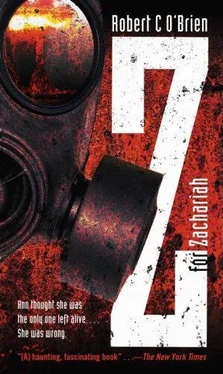
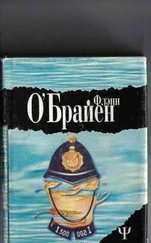
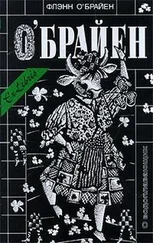
![Роберт Стайн - Дьявольская кровь на завтрак [Monster Blood For Breakfast!]](/books/27867/robert-stajn-dyavolskaya-krov-na-zavtrak-monster-thumb.webp)
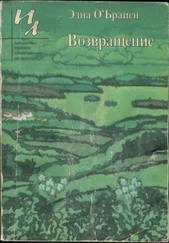
![Роберт Баден-Пауэлл - Искусство скаута-разведчика[Scouting for boys ; Искусство Разведки для мальчиков]](/books/70572/robert-baden-pauell-iskusstvo-skauta-thumb.webp)


